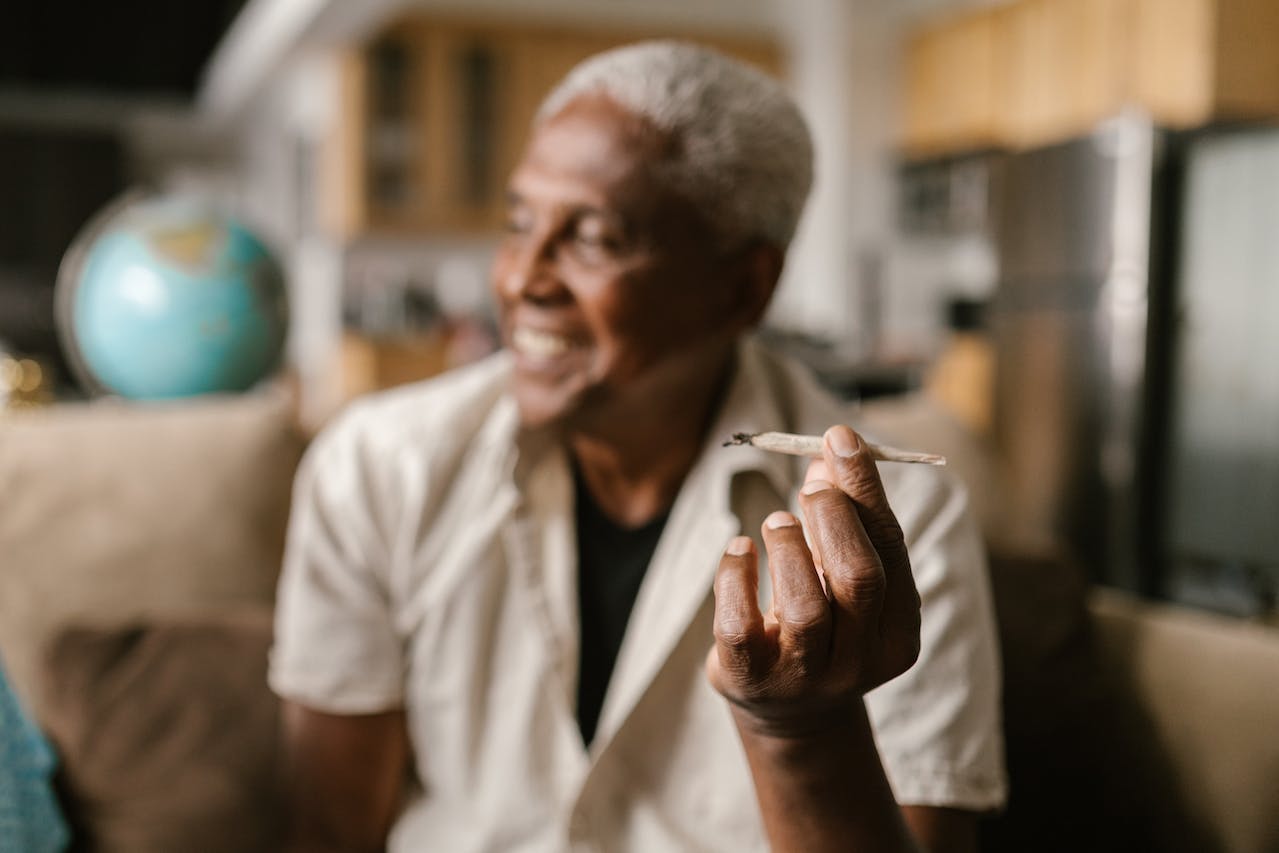Cannabis
Germany Has Finally Legalized Cannabis
Cannabis prohibition in Germany will end on March 1st, and the cultivation ban will follow later. Meanwhile, a field trial is starting in Holland with the sale of grass from state-controlled breeding. The potential of legalization is enormous: the cannabis market in Germany alone is estimated at up to 400 tons. The state could expect around €2.8 billion in tax revenue.

Germany is loosening up. At the beginning of the week, the government factions agreed to legalize cannabis in the country. The chairwoman of the health committee, the Green Party member of the Bundestag Kirsten Kappert-Gonther, spoke of a “paradigm change” and promised: “We are putting an end to the harmful prohibition of cannabis.”
However, the change in the law will not come as planned at the turn of the year, personal cultivation and personal possession of cannabis will not be legalized until March 1st, and the establishment of cannabis clubs for communal cultivation will probably only be legalized in June or July. Cannabis can be smoked there from the age of 18.
Germany Health Minister Karl Lauterbach (SPD) had previously emphasized that the government’s planned legalization law “must not be misunderstood as advertising for smoking cannabis”. Nevertheless, the situation is complex. Some warn of the green hell about the legalization of cannabis, while others speak of recognizing a social reality.
Read more about the legalization of cannabis in Germany and find the most important cannabis news of the day with the Hemp.im mobile app.
Cannabis consumption: The Netherlands is testing “closed coffee shop chains”
This is also shown by a look at the Netherlands, where a cannabis experiment is starting in the city of Breda on December 1st. Paul Depla, 58, can report on this. He is mayor of the Dutch city. He never liked cannabis himself. “I don’t smoke at all,” said Depla and makes it fundamentally clear: “Politics is not about an ideal world. Politics has to regulate things. And good. That’s why we’re not talking about a debate about the pros and cons of cannabis use. Cannabis is a recreational drug. It is consumed and we have to regulate this consumption. And that’s right.”
Depla didn’t have to think twice when the outgoing government was looking for model cities for a new Wiet experiment, as they call cannabis in Holland. It’s about “closed coffee shop chains,” said Depla.
So far the Dutch system has one crucial flaw. Cannabis consumption has been tolerated in the Netherlands since 1976 and is purchased in coffee shops. “But no one asks where the goods that go over the counter come from,” says Depla. They call this a backdoor problem in the Netherlands because the transition to criminality begins with illegality. They want to change that in Holland with licensed hemp cultivation. “We are closing a circle,” says Depla. “In Germany, no one says you can drink beer. But breweries are banned.”
At the beginning of the new Dutch system are agricultural scientists like Hannah Lambertz, 35. She has the title of GMP Officer. This stands for Good Manufacturing Practice, in short: The agricultural scientist is a quality manager and process developer in hemp cultivation. Lambertz comes from the Rhineland, studied in Bonn, and has been working for Fyta, a cannabis manufacturer in Waalwijk, for three years. Lambertz explains: “In the medical sector, we produce flowers, extracts and the purest cannabinoid crystals as pharmaceutical raw materials and in the recreational sector we are the first producer of the experimental closed coffee shop chains that is ready to bring its products to market.” So market leader.
Not all cannabis is the same
Not all cannabis is the same. Cannabis is the dried flowers and leaves of the female plant. When it comes to dried resin, experts speak of hash. The decisive factor is the content of tetrahydrocarbinol – THC, the intoxicating substance in cannabis. In the medical sector, for example, to relieve pain for patients, the THC level can be up to thirty percent; in the recreational sector, the THC content is around fifteen percent.
Fyta is one of ten companies that were awarded a contract by the Dutch government to supply the substance, which will be sold in coffee shops in Breda and ten other selected municipalities. Requirement: Companies must be able to deliver at least 6.5 tons per year. And strict requirements apply. Lambertz speaks of a “track and trace system”. Manufacturing, storage, distribution – everything must be verifiable.
New and old ways
Cannabis is the most commonly used illegal drug worldwide. According to UN estimates, around 200 million adults worldwide smoke cannabis.
In Germany, around eight percent of 12 to 17-year-olds and a good seven percent of 18 to 64-year-old adults use cannabis. From March 1, 2024, up to 25 grams for personal consumption will be exempt from punishment; at home, twice the amount applies. In addition, there is a tolerance limit at which a violation is treated as an administrative offense. Smoking cannabis remains prohibited within 100 meters of schools.
In Switzerland, a test release is being planned in individual communities.
The UN is sticking to the ban on cannabis. EU law also sets limits. The sale of drugs is banned in the EU, as is their cultivation, sale, and cross-border trade. pr
They are also getting to work in Germany. Jakob Sons, 33, says of the traffic light initiative: “This is an important step. A new social understanding of cannabis is beginning.” Sons works in Mörfelden-Walldorf near Frankfurt. This is where Cansativa’s headquarters are located. The company supplies cannabis flowers to German pharmacies – for the medical sector. This has been allowed since 2017. Cansativa was launched in the same year.
As the founder, the lawyer views the traffic light initiative positively. In the medical sector, he sees the initiative as a “real turnaround”. Medical cannabis will no longer be classified as a narcotic in the future. For doctors, this means freedom of treatment; cannabis as a medicine is easier to prescribe. For companies like Cansativa, this means fewer documentation requirements and less bureaucracy. Advertising for medical applications is also becoming a little freer. Sons speaks of a “destigmatization effect”
Sons sounds more reserved for the leisure sector. “Legalization can only be successful in the long term if a comprehensive offer is created. In our opinion, it is questionable whether home cultivation and club cultivation are sufficient. Lauterbach’s initiative does not go far enough for the manufacturers.

Cannabis legalization in Germany will bring billions in tax revenue to the state
The potential of legalization is enormous: the cannabis market in Germany alone is estimated at up to 400 tons. The economist Johannes Haucap determined the economic effect in a study two years ago. Title of the study: “Fiscal effects of cannabis legalization in Germany.” Result: The state could expect around €2.8 billion in tax revenue, plus around €1.3 billion less spending on the police and judiciary. With further effects, according to the study, the fiscal effect would total around €4.7 billion.
Drug experts like Rainer Thomasius reject the plan. He says about Lauterbach’s advance. “In one sentence: This federal government bill will drive young people into cannabis dependence on a massive scale.” Thomasius, 66, knows what he’s talking about. The medical professor and specialist in child and adolescent psychiatry is the medical director of the addiction department at the University Hospital Hamburg-Eppendorf (UKE).
“Of the approximately 1,600 patient cases per year, around 1,200 are cannabis-related,” says Thomasius. The doctor warns of the consequences of releasing cannabis and refers to a UN study on the consequences of legalization in Portugal, Canada, and individual states in the USA: “There, regular consumption among adults increases by one hundred percent and among young people by around 15 percent .”
Drug experts worry about children and young people
Thomasius has been working in addiction medicine at the UKE for more than three decades. He worked on the “Drug-Free Childhood and Youth” program for the city of Hamburg. And he has current research results ready: “The connection between long-term and intensive cannabis use and mental disorders is well documented,” says the doctor, mentioning depression, psychosis, and anxiety. Young people, in particular, are at risk; their brain and personality development has not yet been completed.
Thomasius explained: “Studies show age- and consumption-related cannabis-related thinning of the gray brain matter in the frontal lobe of affected adolescents in the range of 24 percent to 38 percent.” The result: is poorer cognitive abilities. Simply put: smoking cannabis makes you stupid.
Thomasius had a chat with Health Minister Lauterbach in front of the camera. The doctor is critical of a new social acceptance of cannabis and hash. He believes the law misses its mark. The age limit, for example, only leads to a third market. “Anyone who gets cannabis legally sells it to minors – at a surcharge. It doesn’t matter what age limit is introduced.” His warning: “Legalization leads to an expansion of the market. And every market expansion also leads to increased consumption and the number of consumers.”
—
(Featured image by RDNE Stock project via Pexels)
DISCLAIMER: This article was written by a third-party contributor and does not reflect the opinion of Hemp.im, its management, staff, or its associates. Please review our disclaimer for more information.
This article may include forward-looking statements. These forward-looking statements generally are identified by the words “believe,” “project,” “estimate,” “become,” “plan,” “will,” and similar expressions. These forward-looking statements involve known and unknown risks as well as uncertainties, including those discussed in the following cautionary statements and elsewhere in this article and on this site. Although the company may believe that its expectations are based on reasonable assumptions, the actual results that the company may achieve may differ materially from any forward-looking statements, which reflect the opinions of the management of the company only as of the date hereof. Additionally, please make sure to read these important disclosures.
First published in FrankfurterRundschau, a third-party contributor translated and adapted the article from the original. In case of discrepancy, the original will prevail.
Although we made reasonable efforts to provide accurate translations, some parts may be incorrect. Hemp.im assumes no responsibility for errors, omissions or ambiguities in the translations provided on this website. Any person or entity relying on translated content does so at their own risk. Hemp.im is not responsible for losses caused by such reliance on the accuracy or reliability of translated information. If you wish to report an error or inaccuracy in the translation, we encourage you to contact us.

-

 Crowdfunding2 weeks ago
Crowdfunding2 weeks agoSpain’s Real Estate Crowdfunding Boom: Opportunity, Access, and Hidden Risks
-

 Fintech7 days ago
Fintech7 days agoDruo Doubles Processed Volume and Targets Global Expansion by 2026
-

 Impact Investing2 weeks ago
Impact Investing2 weeks agoIntesa Sanpaolo’s 2026–2029 Growth and ESG Strategy
-

 Business5 days ago
Business5 days agoTopRanked.io Weekly Affiliate Digest: What’s Hot in Affiliate Marketing [Health Trader Affiliate Program Review]

























